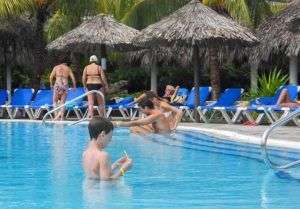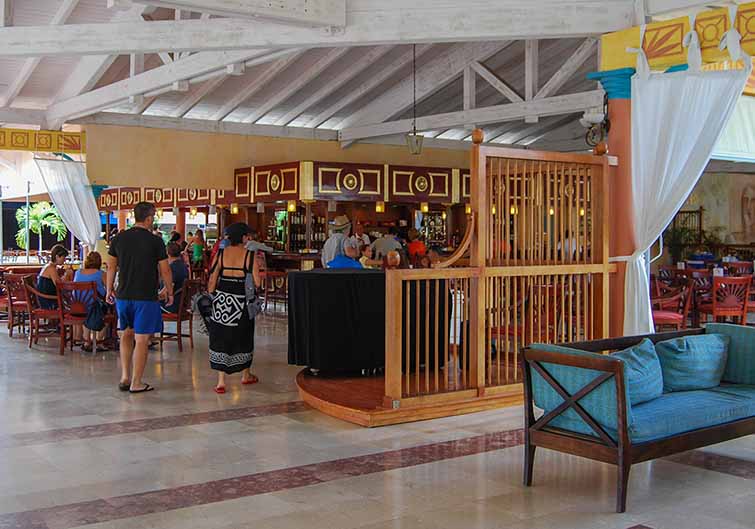Since the 50 Cubans didn’t suffer from the heat as they did this summer, so beaches, camping sites, swimming pools and hotels have been filled. Economic liberalization and the end of the prohibitions opened new possibilities.
For 15 years access to tourist hotels was banned for Cubans, trying to artificially maintain social equality that had disappeared since the beginning of the crisis of the 90s and the legalization of the dollar.
Quickly Cubans living on the island became the second tour group, with 10 percent of the total and an increase this year by 28 percent from 2013. They are located behind the million Canadians and ahead of the emigrants.

The number of Cubans in tourist hotels is growing every year after the end of prohibition / Photo: Raquel Perez.
And most important for the tourism industry is the fact that they go on vacation in low season which allows better hotel occupancy. On a Saturday in August 2013 Cubans paid about $ 800,000 for lodgment.
But opening hotels has also produced a social movement in the holidays. Those with more income went to hotels and by doing that they left private houses to people with medium resources.
The latter sector seized the comforts of private sector and left the camping sites that were occupied by the poorest Cubans, which can get a beachfront cabana or with a pool for 0.30 dollar cents per day, an amount that anyone can afford.
Much of Havana these days flock to the beaches of the East. They travel in a bus that leaves every 15 minutes and take with them from food and toys to a tent for a little shade.
Going to the beach takes 2 hours between the waiting and the journey but there are nearest water activities like renting for a full day in a pool in Fontanar, a suburb of the capital, where there are dozens of them.
Spending the day in one of these pools cost about $ 3 per person; you can eat by only paying $ 2 more. Ensuring a group of friends aged between 15 and 60 you can have the entire facility exclusively.
However, the recent immigration openness also opened the possibility of going on holiday abroad, also favored by the expansion of self-employment, in a mode that increased the income of some Cubans.
Aimed at them the travel agents have a package deal to Europe, where for $ 3000 they can spend 9 days in the old continent. That includes airfare, hotels and special assistance in obtaining the visa.
So far about 250 Cubans have traveled that way and, according to tour operators, all returned home, dispelling fears that some were to use these deals as a way to obtain a visa and migrate to Europe.
No Cuban fails to take advantage of new possibilities, but many avoid even talking about their holidays in hotels and travel to Europe, as if having higher incomes than the rest of the population could be something sinful.
Economic reforms are changing the country, social sectors previously hidden behind the ban on travel or stay in hotels come to light. Somehow through the holidays you can glimpse the real country.











